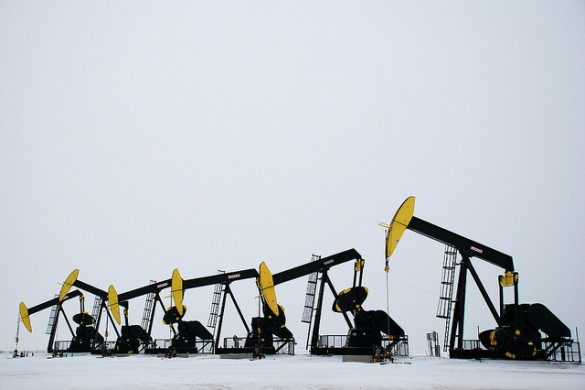Tentative signs of an oil-price recovery were in evidence today.

Both Brent crude and West Texas Intermediate (WTI) are off their lows of a month ago and the trend seems to be upwards.
Brent, changing hands at $19.99 a barrel a month ago, on 27 April, not only found support at $20 but is now trading at $32.50.
Talks with China
It was a similar story for WTI, which slumped to $12.78 on 27 April but is now trading at $29.52.
Of course, neither of these benchmark crudes is anywhere near its price of three months ago, when, on 27 February, Brent traded at $52.18 and WTI closed at $47. This was before the full impact of the coronavirus was felt on either side of the Atlantic and when many were in agreement with the remarks attributed to President Donald Trump that the illness was little more serious than seasonal influenza.
Twelve months ago, the prices for a barrel of oil resemble something out of a vanished world. Brent changed hands at $70.11 on 27 May 2019 and WTI sold for $59.13.
The 13-nation energy cartel, the Organisation of Petroleum Exporting Countries (OPEC), has agreed with supportive non-member countries, the “NOPEC” group, to cut about 10% out of global supply to support the price, roughly 10 million barrels a day. Earlier this month, OPEC reached an accord with China, the world’s largest oil importer, to work together to stabilise the global crude-oil market.
The head of China’s National Energy Administration, Zhang Jianhua, held discussions with OPEC secretary general Mohammad Sanusi Barkindo at the cartel’s HQ in Vienna. According to OPEC: “The meeting laid a solid foundation for future co-operation and participants were enthusiastic about the deepening dialogue between OPEC and China. “
Investment slump
Mr Barkindo added that “the [coronavirus] pandemic has provided the opportunity to further strengthen this relationship, and proven that the forces of globalisation are irreversible… rich lessons we are currently learning from the pandemic make it abundantly clear that the triumph of multilateralism and international cooperation cannot be disputed”.
Mr Zhang, according to OPEC, said China “is already on the road to recovery. The country hopes to regain its former energy consumption patterns soon, which should help support the oil industry.
“He added China wants to work closely with OPEC to stabilise the global oil industry, ensure future energy security for the world and facilitate the energy transition [away from fossil fuels]”.
Another factor that may support prices is a slump in energy-related investment, which may restrict future supply. This morning, the BBC reported: “The coronavirus crisis is causing the biggest fall in global energy investment in history. Before the pandemic, funding was set to rise 2%, but now it’s predicted to plunge 20%, says the International Energy Agency (IEA).
“Fossil fuels are hit hardest, with a 30% funding drop expected for oil and a 15% fall for coal.”


 Hot Features
Hot Features













